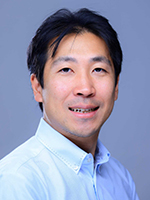A New Recipe for Success
Akito Kashiwai credits the MMM program with giving him the needed support to create a startup aimed at changing how small food-service businesses find funding.
Akito Kashiwai (MMM ‘24) wants to help small food-service businesses beat the odds, survive, and thrive.
Kashiwai is the founder of Kitchen Kapital, a startup that uses machine learning (ML) and artificial intelligence (AI) to determine the credit worthiness of food-service operations.
 To help launch his startup, Kashiwai is leaning on the opportunities provided through Northwestern's MBA + MS Design Innovation (MMM) program — a dual-degree program between Northwestern Engineering and the Kellogg School of Management.
To help launch his startup, Kashiwai is leaning on the opportunities provided through Northwestern's MBA + MS Design Innovation (MMM) program — a dual-degree program between Northwestern Engineering and the Kellogg School of Management.
“Small businesses normally do not have much access to capital unless they have really rich people around them or [the owners] are originally rich,” said Kashiwai, who started Kitchen Kapital in January 2023. “We are trying to fill that gap by providing a holistic business picture of those small businesses, particularly small food services, to unlock their financial options.”
The traditional method of judging a business’s credit risk was formalized more than 30 years ago. The FICO model was born in 1989 and is calculated based on information gleaned from a credit report prepared by one of the three major credit bureaus.
The reality Kashiwai is embracing through Kitchen Kapital is that technology has changed immensely since the FICO model was introduced, and potentially offers a much better way to assess the financial health and potential of a business.
Kitchen Kapital looks beyond traditional methods to tools such as Google Maps data to show whether the new food-service operation is in a good location, and social engagement through reviews and postings. Kitchen Kapital then feeds that data into an algorithm to determine which businesses are most worthy of a cash infusion.
Kashiwai's vision for Kitchen Kapital began forming during the past decade while he worked in the financial technology industry in Japan, Thailand, and Vietnam. He said MMM gave him the framework and skills needed to take a nebulous idea and turn it into a successful business venture.
“I was always interested in making something new using new technologies,” he said. “The MMM program was a perfect fit for me to really learn the theory and practice to make something new from a different perspective.”
That different perspective is one of the foundational principles of the MMM program: human-centered design. With that theory, the idea is that the best products are created by starting with end users in mind and conducting in-depth interviews with them to uncover their pain points. This happens before the product design process begins.
Kashiwai followed that process, and that's how Kitchen Kapital came to be. The company offers up to $50,000 to food-service businesses to bolster their operations. As Kashiwai discovered, that capital is often extremely necessary.
According to the National Restaurant Association, nearly one in three new restaurants fails in the first year. CNBC reported that failure percentage grows to as high as 80 percent within the first five years.
Among the top reasons cited for the high failure rate is the high overhead costs associated with getting started – including food, liquor, and labor costs.
Kashiwai hopes Kitchen Kapital leads to more success stories, and he is relying on resources available to MMM students to make that happen.
Kashiwai credits The Garage, an innovation and entrepreneurship space for students at Northwestern, with helping him find like-minded individuals to build a staff. He also said being selected to the Zell Fellows Program – which gives students mentorship, resources, community, and applied experiences to help further their entrepreneurial idea – has been key in helping Kitchen Kapital get where it is.
Kashiwai plans to continue developing the company through graduation and make it his full-time effort once he has his diploma.
“I’m really looking forward to having some trial partnerships with financial institutions so we can test out this model,” he said. “In the long term, hopefully we can fill that big gap in funding and make for a really good, diverse food-service environment.”
